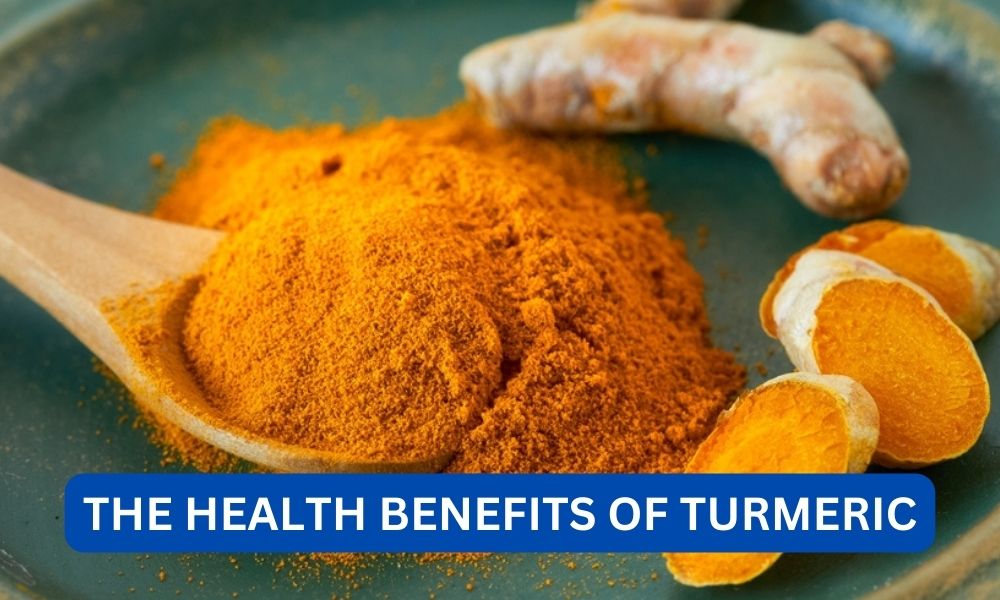Turmeric, also known as Curcuma longa, is a bright yellow spice commonly used in Indian and Southeast Asian cuisine. It has been used for centuries in traditional medicine to treat a variety of ailments. In recent years, turmeric has gained popularity in the Western world for its potential health benefits. From reducing inflammation to improving brain function, turmeric has been touted as a superfood with numerous health benefits. In this article, we will delve into the science behind turmeric and explore its potential health benefits.
Contents
Anti-Inflammatory Properties
Inflammation is a natural response of the body to injury or infection. However, chronic inflammation can lead to various health problems, such as heart disease, cancer, and autoimmune disorders. Curcumin has been found to have powerful anti-inflammatory properties, making turmeric a potential natural remedy for chronic inflammation.
A study published in the Journal of Alternative and Complementary Medicine found that curcumin was as effective as ibuprofen in reducing pain and inflammation in patients with osteoarthritis. Another study showed that curcumin was effective in reducing inflammation in patients with rheumatoid arthritis.
Moreover, a review of several studies found that curcumin can inhibit the activity of enzymes that promote inflammation in the body. This makes turmeric a promising natural alternative to non-steroidal anti-inflammatory drugs (NSAIDs) for managing chronic inflammation.
Read:what’s the benefits of magnesiumImproved Brain Function
The brain is a complex organ that is responsible for controlling our thoughts, emotions, and bodily functions. As we age, our brain function declines, leading to memory loss, cognitive impairment, and even neurodegenerative diseases like Alzheimer’s. However, studies have shown that curcumin may have neuroprotective properties that can improve brain function and prevent age-related cognitive decline.
A study published in the Journal of Psychopharmacology found that taking a daily dose of curcumin for 18 months improved memory and attention in older adults with mild memory complaints. Another study showed that curcumin can increase levels of brain-derived neurotrophic factor (BDNF), a protein that promotes the growth of new neurons and is essential for learning and memory.
Furthermore, curcumin has been found to have antioxidant and anti-inflammatory effects in the brain, which can protect against neurodegenerative diseases like Alzheimer’s and Parkinson’s. While more research is needed, these findings suggest that turmeric may have a positive impact on brain health.
Heart Health Benefits
Heart disease is the leading cause of death globally, and risk factors such as high cholesterol, high blood pressure, and inflammation can increase the likelihood of developing heart disease. Curcumin has been found to have several heart-healthy properties that can help prevent and manage heart disease.
Read:What are the benefits of rosemary?A study published in the journal Nutrition Research found that taking a daily dose of curcumin for eight weeks significantly reduced levels of LDL (bad) cholesterol and triglycerides in patients with metabolic syndrome. Another study showed that curcumin can improve endothelial function, which is essential for maintaining healthy blood vessels and preventing heart disease.
Moreover, curcumin has been found to have anti-inflammatory and antioxidant effects that can protect against heart disease. A study published in the American Journal of Cardiology found that curcumin can reduce the risk of heart attack in bypass surgery patients by 65%. These findings suggest that incorporating turmeric into your diet may have significant benefits for heart health.
Potential Cancer-Fighting Properties
Cancer is a complex disease characterized by the uncontrolled growth of abnormal cells. While more research is needed, studies have shown that curcumin may have anti-cancer properties that can help prevent and treat various types of cancer.
A study published in the journal Cancer Letters found that curcumin can inhibit the growth of cancer cells and induce cell death in multiple types of cancer, including breast, lung, and colon cancer. Another study showed that curcumin can reduce the growth of prostate cancer cells and prevent the spread of cancer to other parts of the body.
Read:what are the benefits of alkaline waterMoreover, curcumin has been found to have antioxidant and anti-inflammatory effects that can protect against DNA damage and prevent the development of cancer. While more research is needed, these findings suggest that turmeric may have potential as a natural cancer-fighting agent.
Other Potential Health Benefits
In addition to the health benefits mentioned above, turmeric has been found to have other potential benefits for overall health and well-being. These include:
- Improved digestion: Curcumin has been found to stimulate the production of bile, which aids in digestion and can help alleviate symptoms of digestive disorders like irritable bowel syndrome (IBS).
- Weight management: Studies have shown that curcumin can help reduce body fat and prevent weight gain, making it a potential aid in weight management.
- Antimicrobial properties: Turmeric has been used in traditional medicine as an antimicrobial agent, and studies have shown that curcumin can inhibit the growth of bacteria, viruses, and fungi.
- Improved skin health: Curcumin has been found to have anti-inflammatory and antioxidant effects that can improve skin health and treat conditions like acne, psoriasis, and eczema.
How to Incorporate Turmeric into Your Diet
While turmeric can be taken in supplement form, incorporating it into your diet is an easy and delicious way to reap its health benefits. Here are some ideas for adding turmeric to your meals:
- Add a teaspoon of turmeric to your morning smoothie.
- Sprinkle turmeric on roasted vegetables or in soups and stews.
- Make a turmeric latte by mixing turmeric with milk and honey.
- Use turmeric in marinades for meat or tofu.
- Make a turmeric salad dressing by mixing turmeric with olive oil, lemon juice, and your favorite herbs and spices.
Precautions and Side Effects
While turmeric is generally safe for consumption, it is essential to consult with your doctor before taking turmeric supplements, especially if you are pregnant, breastfeeding, or taking any medications. Some potential side effects of turmeric include:
- Upset stomach
- Nausea
- Diarrhea
- Dizziness
- Increased risk of bleeding
Additionally, turmeric may interact with certain medications, such as blood thinners and diabetes medications, so it is crucial to consult with your doctor before adding turmeric to your diet.
In Conclusion:
Turmeric has been used for centuries in traditional medicine and is now gaining recognition in the Western world for its potential health benefits. From reducing inflammation to improving brain function and preventing heart disease and cancer, turmeric has been touted as a superfood with numerous health benefits. While more research is needed, incorporating turmeric into your diet may be a simple and effective way to improve your overall health and well-being.
Remember to consult with your doctor before taking turmeric supplements, and always opt for high-quality, organic turmeric to reap its full benefits. So, why not add a dash of turmeric to your next meal and experience the power of this golden spice for yourself?









